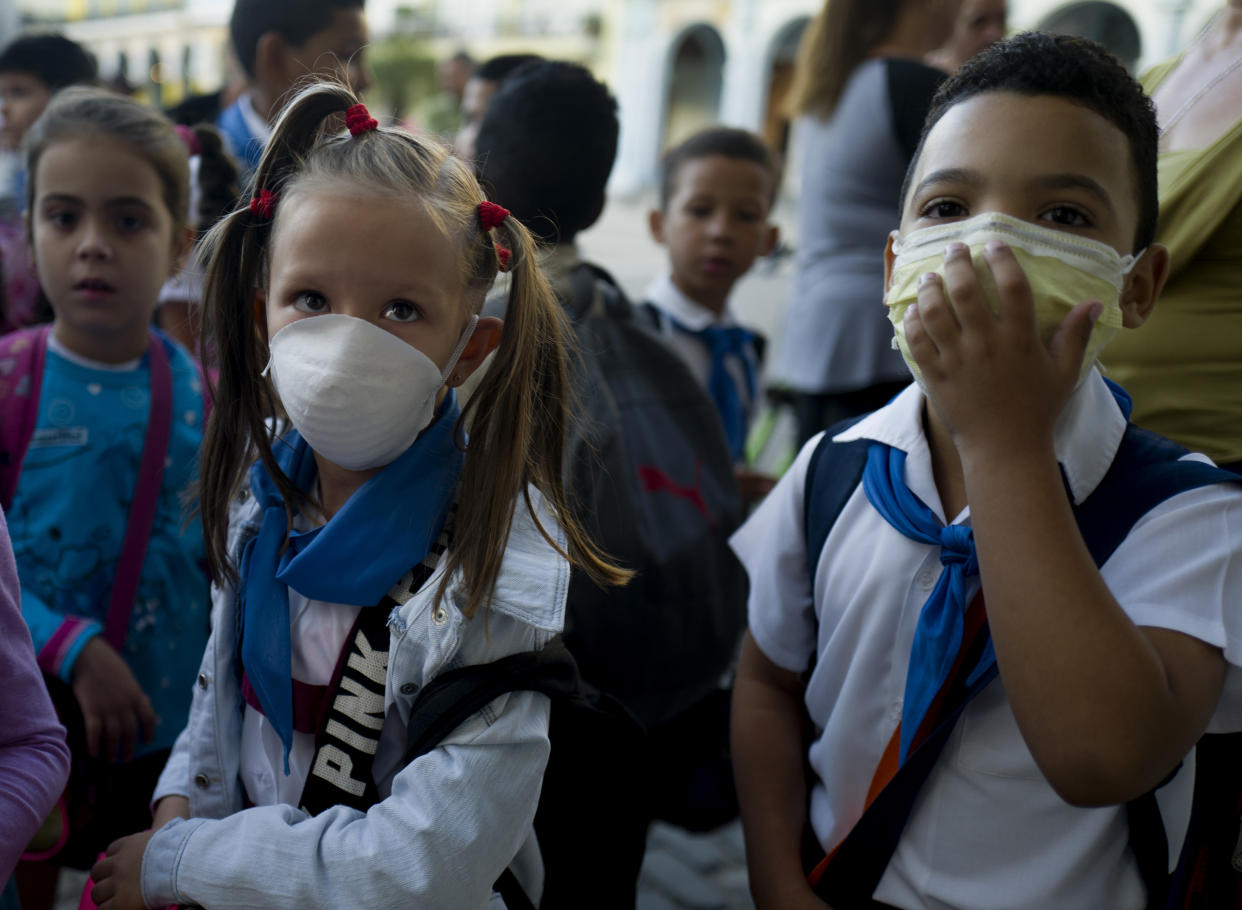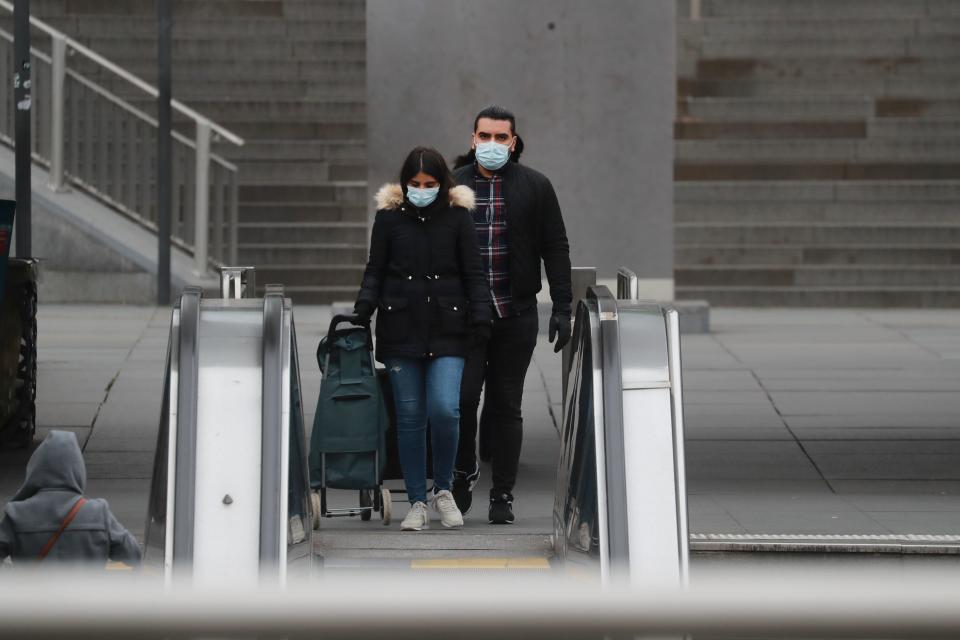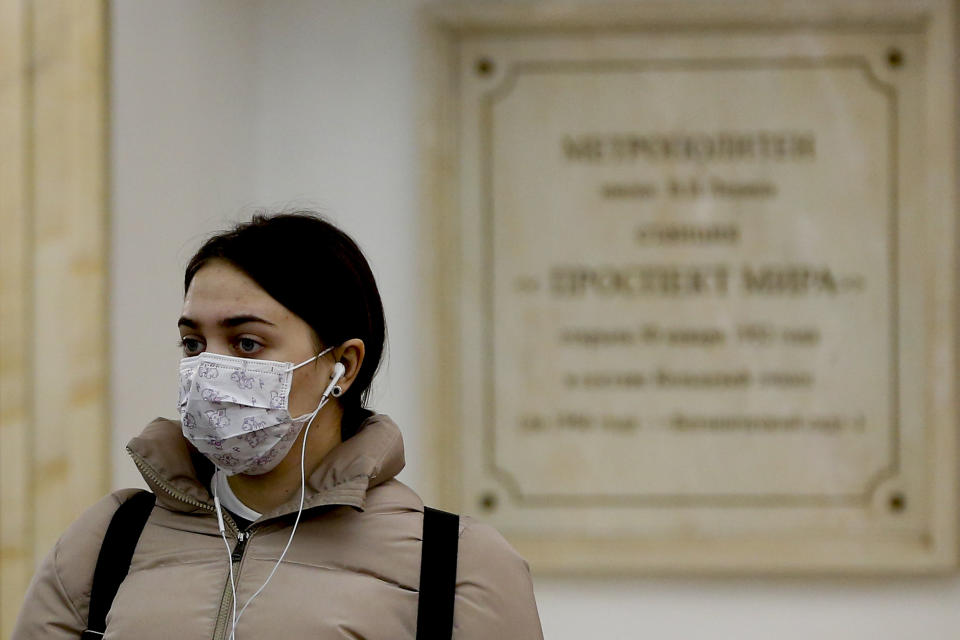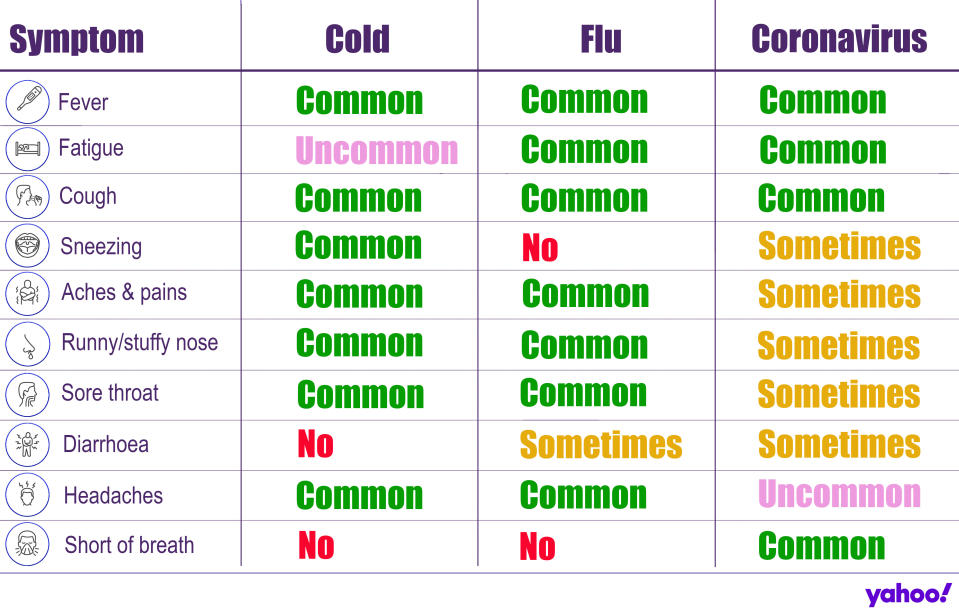Will closing schools help stem the coronavirus outbreak?

The UK has been criticised for keeping schools open amid the coronavirus outbreak – but is the decision to hold back the right one?
Following an emergency Cobra meeting on Thursday, Boris Johnson announced there is no plan to close UK schools, adding that evidence suggests the move could do “more harm than good at this time”.
This decision was met with an outcry on Twitter, with users urging officials to #shutschoolsnow.
Two primary schools in Northern Ireland have since shut “voluntarily”, while some in Scotland have closed their doors for a deep clean.
Elsewhere, New York City has become the latest “hotspot” to keep students at home in a bid to stem what is now being described as a pandemic, following the likes of France, Italy and Ireland among many others.
Latest coronavirus news, updates and advice
Live: Follow all the latest updates from the UK and around the world
Fact-checker: The number of Covid-19 cases in your local area
Explained: Symptoms, latest advice and how it compares to the flu
Concerned parents may be keen to have their children at home, but experts largely agree that keeping schools open could be for the best.
The circulating coronavirus, called Covid-19, is a strain of a class of viruses.

It is thought to have emerged at a seafood and live animal market in the Chinese city of Wuhan at the end of last year.
Since then, more than 174,000 cases have been confirmed across 155 countries in every inhabited continent, according to John Hopkins University data.
China – once the epicentre of the outbreak – has had a plateauing number of patients since the end of February, with the number of new daily cases now in the single figures.
This has made Europe the worst affected part of the world, with Italy alone having more than 24,700 confirmed incidences and over 1,800 deaths.
In the UK, more than 37,000 people have been tested, with 1,551 coming back positive and 36 patients dying.
Globally, the death toll has exceeded 6,700.
While the figures are alarming, early research suggests four out of five cases are mild, with more than 77,000 patients confirmed to have “recovered” since the outbreak began.

Ireland’s prime minister Leo Varadkar announced the decision to close schools and universities from last Thursday until 29 March. The country has had 169 confirmed cases.
Although the move was welcomed by many concerned parents, not all experts are convinced.
Speaking at the time, Professor Jimmy Whitworth from the London School of Hygiene & Tropical Medicine said: “I am sceptical about closing schools.
“I don’t see any convincing evidence that children are driving transmission here and school closures would cause lots of social disruption.
“If it was part of a package of reducing gatherings, that would make more sense, but I wouldn’t target schools particularly.”
The Irish government later asked pubs and bars to close, no doubt derailing St Patrick’s Day celebrations on 17 March.
Covid-19 is one of seven strains of the coronavirus class that are known to infect humans.
With the strain emerging at the end of last year, experts have warned no one has immunity to the virus.
While anyone can become infected, the vast majority of deaths are occurring in the elderly or those with underlying health issues.
Scientists from the Chinese Center for Disease Control and Prevention previously published information on the 44,672 confirmed cases as of 11 February.
Results suggested the highest fatality rate was in those aged 80 or over, where 14.8% did not recover.
In patients up to 39, the death rate was 0.2%.
No fatalities were reported in children up to nine years old.
With many parents forced to work, grandparents may be called upon to provide childcare.
“If the closure is not carefully managed then children may spend more time with, and thereby increase the infection risk of, their grandparents, who appear to be more vulnerable to complications from coronavirus,” said Dr Thomas House of the University of Manchester.
Professor Keith Neal from the University of Nottingham also voiced concern, adding that children may have to travel elsewhere for care, spreading the virus around the UK.
Dr Charlotte Jackson from University College London said closing schools may not result in children being in isolation, with them potentially still mixing with their peers and other age groups.
“There are important downsides to closing schools,” she said.
“Parents may need to miss work and for some that means losing income – as well as the impact on those families, this may cause wider disruption and might be in addition to work absenteeism due to illness.
“Children missing out on free school meals can have a big impact for some families.”
Parents who do temporarily give up employment to look after their children may also work for the NHS, taking care away from the sick.
Overall, Dr Neal stressed there is no “one size fits all” approach to combatting this outbreak.
“Different countries are at different stages of the epidemic, so what one country should do will not apply to others,” he said after Ireland’s announcement.
“Schools will close soon for the Easter holidays, which will give some idea of the impact of this measure.
“The UK should adopt UK-appropriate measures and not give in to the demand for something to be done, otherwise this will result in inappropriate actions at the wrong time.”

What is Covid-19?
Most of those who initially caught Covid-19 worked at, or visited, the “wet market” in Wuhan.
The virus mainly spreads via infected droplets that have been coughed or sneezed out by a patient.
There is also evidence it may be transmitted in faeces and urine.
In most cases, a patient’s immune system naturally fights off the virus.
Pneumonia can come about when the infection causes the alveoli (air sacs) in the lungs to become inflamed and filled with fluid or pus.
The lungs then struggle to draw in air, resulting in reduced oxygen in the bloodstream.
Those requiring hospitalisation are offered “supportive care”, like ventilation, while their immune system gets to work.
To ward off infection, officials urge people to wash their hands regularly and maintain social distancing.




